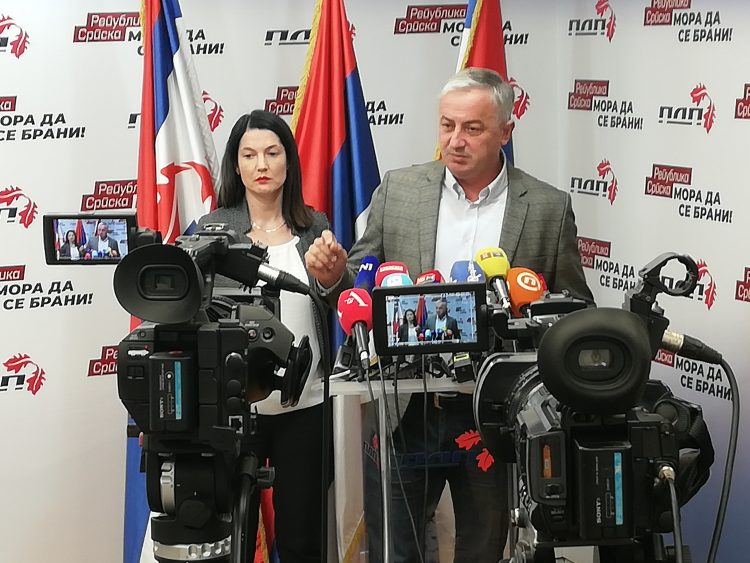
The 2 October general election in Bosnia and Herzegovina was severely marred by numerous irregularities, Bosnian Serb opposition parties said on Monday, announcing complaints of election fraud.
Ballots are still being counted, including a recount of votes for candidates running for President of Republika Srpska (RS), the Serb entity in Bosnia and Herzegovina.
Darko Babalj of the Serb Democratic Party told a press conference in Banja Luka that irregularities had been found at 450 of 528 polling stations in the city. The irregularities solely concern votes for RS President.
The race for RS President involves the incumbent member of the Bosnia and Herzegovina Presidency, Milorad Dodik, and the candidate of the united opposition, Jelena Trivic from the Democratic Progress Party. Dodik had had a lead of some 30,000 votes before the Central Election Commission ordered a recount.
Writing on Instagram on Monday, Dodik declared himself the winner, challenging legal grounds for the ongoing ballot checks. “Although its decision is unlawful, the Central Election Commission will sooner or later announce the results of the election for RS President. We are not afraid of the result because we know that our victory is honourable and pure.”
Trivic said that the difference in the number of votes was no longer relevant because it had been found beyond any doubt that election fraud had been committed.
The deputy director of the Central Election Commission, Adi Agic, said that vote counters and checkers would complete their work on time so that final results could be published by the statutory deadline of 22 October. The whole process, including appeals, has to be finalised by 3 November.
According to preliminary results, Denis Becirovic, Zeljka Cvijanovic and Zeljko Komsic will represent the country's constituent peoples — Bosniaks, Serbs and Croats — in the Presidency of Bosnia and Herzegovina. The three largest national parties — Dodik's Alliance of Independent Social Democrats, the predominantly Bosniak Party of Democratic Action (SDA) and the Croatian Democratic Union of Bosnia and Herzegovina (HDZ BiH) — received the most votes for seats in the state parliament and the parliaments of the two entities.
In the ten cantons in the Bosniak-Croat Federation entity, the HDZ BiH has a clear majority in Croat-majority cantons, while in Bosniak-majority cantons votes are split between the SDA and the opposition.





Kakvo je tvoje mišljenje o ovome?
Budi prvi koji će ostaviti komentar!